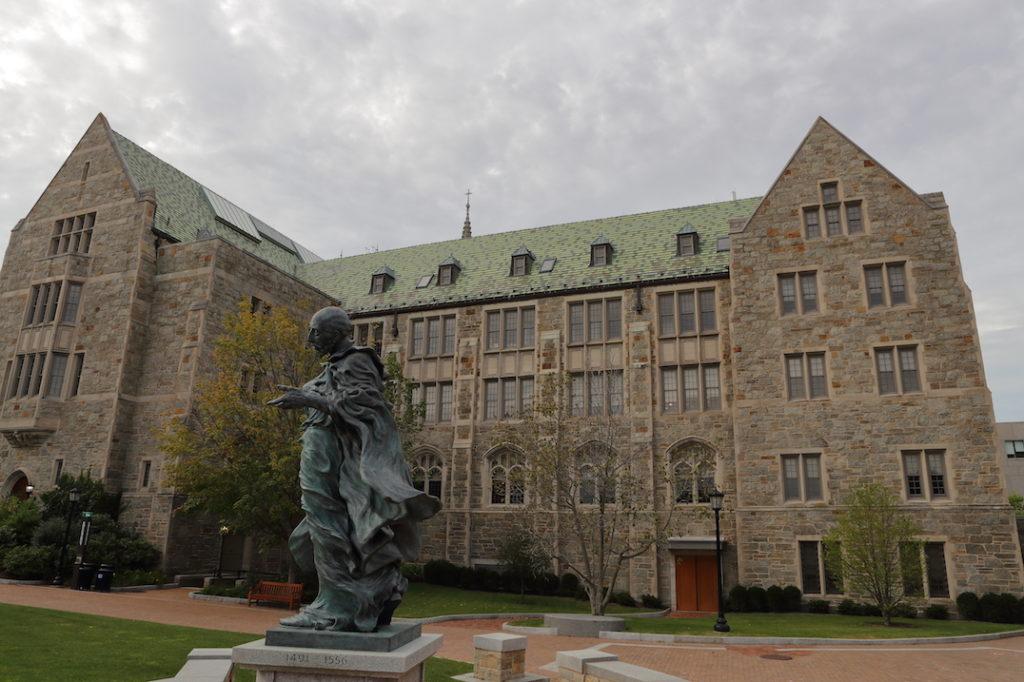The Office of International Programs (OIP) and the Office of International Students and Scholars (OISS) will launch Boston College’s 10th annual International Education Week (IEW) on Monday, Nov. 11. This year’s iteration addresses environmental justice, according to Nick Gozik, director of OIP.
The U.S. Departments of State and Education started IEW in 2000, although it didn’t reach BC until OISS launched its own version in 2010. OIP began co-directing the International Education Committee four years later.
Gozik said that IEW is an important initiative because it helps students learn more about international approaches to pressing issues, rather than viewing them from the U.S.’s perspective. Students with global experience—such as international students or undergraduates enrolled in study abroad programs—and those who have never left the U.S. can benefit from IEW programming.
“We want to make sure all BC students’, staff, and faculty have the opportunity to be part of [and] benefit from internationalization and to learn from others,” he said.
Gozik said that the theme—“Global Environmental (In)Justice: How Do We Respond?”—came about after BC’s International Education Committee looked at what BC students have shown interest in addressing in recent years.
“Each year, we sit around and we look at what are the main themes that have been discussed on campus, what matters to people,” Gozik said. “Questions of climate change, questions of pollution, questions of all these different factors are being discussed [at the] clinical level.”
Their goal is to focus on climate change and pollution on the international stage, but tie it to the local level, according to Gozik.
He noted that, while important, science is not everything when it comes to this conversation—the discussion also needs to include how environmental trends affect human lives and communities across the planet.
“[We are] thinking about marginalized communities,” Gozik said. “And that could be locally, that can be in the Boston area, that can be nationally, or it can be internationally. So each of these different levels becomes relevant in this global conversation.”
In implementing this year’s theme, the OIP and OISS collaborated with several academic departments and offices to produce events that will contribute to furthering the goals of this year’s IEW, according to Gozik. For example, the environmental studies program will be running an event titled “Environmental In(Justice) in the Americas: A Conversation from Puerto Rico and Honduras,” while faculty from the economics department will be contributing to an event titled “Recent Trends in Inequality in the U.S.”
Partners in this year’s IEW include the biology, philosophy, and sociology departments, Gozik said, as well as the Weston Observatory and the Schiller Institute.
Other events focus on how climate change and environmental issues have affected faith communities, immigrants and refugees, and corporations, and how each group has responded to recent challenges, Gozik said.
The panels and lectures held during IEW are not meant to be one-sided discussions—Gozik highlighted the importance of having a conversation that focuses on the issues we face during these events. In order to achieve this, most of the events during IEW will be held in small rooms, which will hopefully encourage people to engage in discussion, he said.
“One of the things that we were emphasizing [was] the role of dialogue and discussion,” Gozik said. “We’re not trying to pack some giant auditorium because we want people to come and to be able to talk and listen and to ultimately have a conversation.”
Featured Image by Jonathan Ye / Heights Senior Staff







